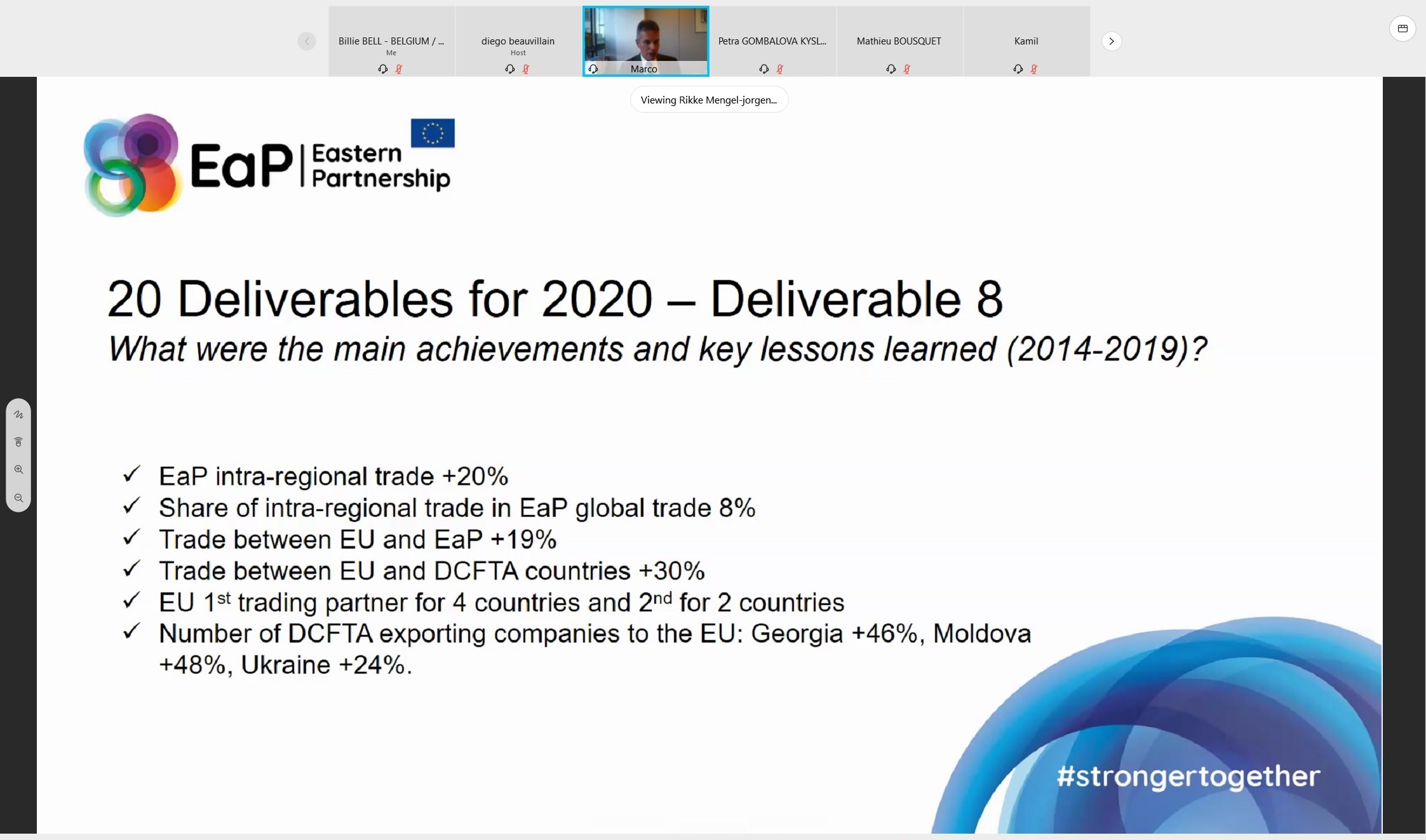Brussels, 20 November 2020
Platform 2 – Priorities beyond 2020
EaP CSF representatives, Veronika Movchan (The Institute for Economic Research and Policy Consulting – IER, Kyiv), Konstantin Zhgenti (Association of Business Consulting Organisations, Georgia), Ihor Samokhodsky (Better Regulation Delivery Office) and Maksym Koriavets (PFIRS) channeled the input of the Forum on the new post-2020 deliverables and the civil society’s expectations for resilient, sustainable and integrated economies across the EaP region during the EaP Platform 2 meeting.
The future deliverables of the Eastern Partnership in the areas of trade and economic integration, investment and access to finance, digital infrastructure and e-governance, digital economy and innovation, and cyber security were at the centre of the EaP Platform 2 meeting “Priorities beyond 2020: Priorities for post-2020 cooperation – Economic Development and Market Opportunities”.
EaP CSF representative Veronika Movchan stressed that for the economic agenda post-2020, trade facilitation measures should be provided more clearly, technical barriers to trade should be reduced, and deeper integration in service trade through financial markets, digital services or transport should be promoted.
Due to the lack of attention to micro and small enterprises, their survival is at risk, particularly during crisis situations, underlined civil society representative Konstantin Zhgenti during the session on investment, access to finance and SMEs. He suggested that a better access to finance for micro and small businesses should be secured, with a focus on rural enterprises or start-ups, while also enacting direct finance facility programs and establishing loan guarantee facilities.
The final discussion dealt with the topics of digital infrastructure and e-government, digital economy, innovation and cybersecurity and allowed Maksym Koriavets to contribute with ideas regarding the digital transformation of the region: “EaP countries’ access to the EU Digital Single Market, and concerted skills development – including through the education system, and programmes seeking to re-skill and up-skill the existing labour force – can help to boost economic growth in the medium-term and foster a self-propagating digital transformation in the longer-term.” Koriavets also highlighted that the development of the digital infrastructure and the harmonisation of e-commerce legislation should remain high on the future EaP agenda.
Thanks to the collected input via consultations and EaP Platform and Panel meetings, the European Commission will be able to further shape the new deliverables beyond 2020 and prepare for their adoption during the next EaP Summit in 2021.


